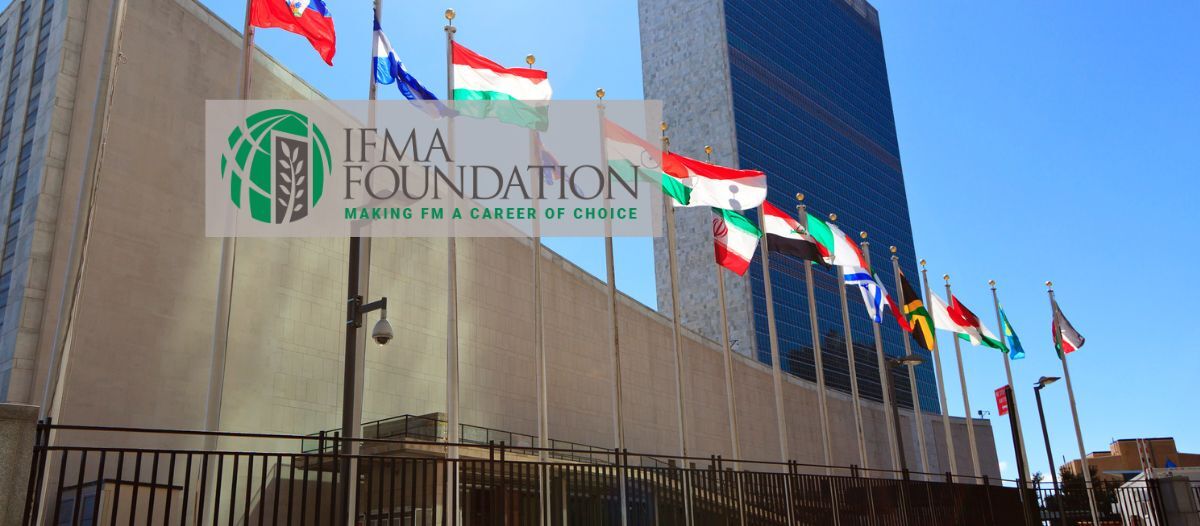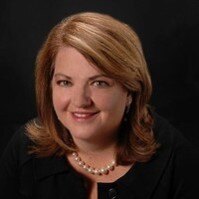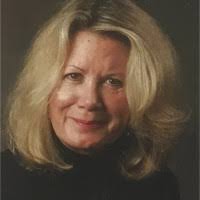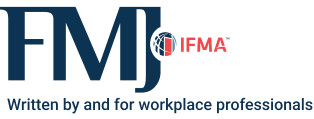The UN & the IFMA Foundation
New special consultative status granted

Earlier this year, the United Nations (UN) granted the IFMA Foundation (foundation) special consultative status with the UN Economic and Social Council (ECOSOC) as a nongovernmental organization (NGO). This will allow the foundation to participate in the work of the United Nations – sharing ideas and information; forming beneficial partnerships with governments, the private sector and civil society; elevating awareness and advancement of the UN 2030 Sustainable Development Goals; and collaborating with UN Educational, Scientific and Cultural Organization (UNESCO) NGOs in the built environment.
As an NGO, the foundation is invited to attend ECOSOC and subsidiary group meetings and panel discussions, share advice and early warnings, and seek opportunities to provide expertise and representation on behalf of FM – a US$1 trillion industry with more than 25 million practitioners worldwide.
ECOSOC is responsible for the direction and coordination of the UN’s economic, social, humanitarian and cultural activities, serving as a central forum for international discussion among policymakers, parliamentarians, academics, foundations, businesses, youth and NGOs on economic and social issues. Through FM Accredited Degree programs – for which the foundation serves as the accrediting body, together with ABET – a constituency of global industry experts will provide insight and support to the council.
What is an NGO?
Generally defined as nonprofit organizations independent from government influence, NGOs are typically value-based organizations that depend, in whole or in part, on charitable donations and voluntary service. Issues addressed by NGOs range from human rights and community development to environmental protection and disaster relief. NGOs’ work with the UN includes information dissemination, awareness raising, development education, policy advocacy, joint operational projects and technical expertise.
Why does it matter?
The foundation’s Vision is to live in a world where everyone has access to education and career opportunities in facility management and sustainability, inspiring and shaping the future of the built environment. Because its mission with the Global Workforce Initiative (GWI) addresses the three pillars of sustainable development – economic, social and environmental – the foundation is uniquely positioned to make a meaningful contribution to the work of ECOSOC.
Facility management is one of the few professions that can impact all 17 UN Sustainable Development Goals (SDGs), an incentive for students considering FM degree programs, particularly in Europe. Sustainability skills will remain essential for FMs in the foreseeable future and will increase the leadership potential for those with demonstrated expertise in maximizing efficiencies, streamlining building operations, and implementing projects that save money, increase worker well-being and performance, operate healthy buildings, and positively impact the community.
The foundation’s belief that a better prepared workforce ensures a sustainable future not only for the FM industry, but the global economy and the planet itself supports the UN’s mission to “achieve a better and more sustainable future for all.”
In addition to a focus on training today’s youth and incumbent workers for tomorrow’s business challenges, the foundation works closely with local governments, multinational corporations, and small- to medium-sized businesses to leverage the strengths of the corporate and government sectors on behalf of FM for social good. Examples include recent grant awards from the Texas Workforce Commission for an FM pre-apprenticeship program (51 students) and the Denver Climate Action Sustainability and Resiliency (CASR) Office for a Good Green Jobs Program (45 students). These programs are providing FM workforce development and education to underserved communities, women, veterans and workers displaced by COVID-19. Partnering with Goodwill of Houston, Goodwill of Colorado, and the IFMA Houston and IFMA Denver chapters, the foundation is providing green jobs and economic mobility for students enrolled in these grant programs.
GWI: Educate, invest, connect
GWI programs are supported by IFMA Foundation GWI Advisors JLL, Sodexo, ABM Industries, and A&A Elevated Facility Solutions, who provide both financial support and jobs to students graduating from these programs. GWI Advisors also provide strategic direction and guidance on the management, growth and geographic areas for new programs. Last year, JLL hired 17 students through GWI.
“The Global Workforce Initiative is a critical effort to ensure the continued sustainability of the facility management profession,” said GWI Advisor and IFMA Foundation Chair Irene Thomas Johnson. “There is a serious labor shortage on the horizon within the facility management industry. Without decisive action, this shortage will have serious ramifications on the future of the built environment. The IFMA Foundation and our GWI Advisors are collaborating on this critical initiative with the collective goal of attracting diverse talent to careers in FM and supporting their long-term growth through training and education opportunities.”
GWI programs, including bachelor’s, master’s and doctorate degrees and certificates, are offered through the foundation’s:
-
FM Accredited Degree Programs (ADP)
-
FM Registered Degree Programs (RDP)
-
FM Talent Development Pipeline Programs (TDP)
Students enrolled in GWI programs apply for scholarships and participate in internships, job shadowing and the IgniteFM! Student Challenge. Today’s smart buildings require more advanced technical knowledge than the normal training programs offer. GWI programs work to fill the lack of skilled FM professionals to ensure buildings and infrastructure are managed and maintained properly to avoid potential public safety and health issues.
Call to action
Anyone can help the foundation by supporting its goals and taking advantage of opportunities to shape the future.
Partnership Goals
-
Fill the FM talent gap with well-qualified professionals
-
Expose youth, incumbent workers, veterans, the unemployed and underemployed to FM careers.
-
Educate guidance counselors, parents and teachers about FM.
-
Engage local FM professionals in student outreach programs
-
Introduce the FM profession into high schools and community colleges.
-
Grow the number of FM educational programs in underserved communities.
-
Increase the number of employments, internships, apprenticeships and job shadowing opportunities in FM.
-
Increase the number of annual scholarships offered to students.
-
Invite companies to join the UN Global Compact (unglobalcompact.org).
-
Make people aware of FM’s significant role in impacting the UN 2030 Sustainable Development Goals.
-
Connect with STEM, STEAM and other existing outreach programs to promote FM.
The NGO storyAs with many stories about an incredible achievement born from a once unimaginable goal, it all started with a suggestion to connect, learn more, get excited and get involved. A handful of years ago, IFMA SoCal WE Hub Leader Christina DeBono suggested that IFMA Foundation Executive Director Diane Levine, IFMA Fellow, MCR meet with Susan Angus, executive director of the Commission on Voluntary Service in Action (CVSA), who was “doing amazing work on the UN 2030 SDGs.” In addition to raising SDG awareness among community organizations, governments and businesses, Angus was also involved in their development, as CVSA has been a United Nations non-governmental organization (NGO) since 2003. Levine was asked to join CVSA’s advisory board and learned about how to qualify as an NGO. In 2020, Levine received the greenlight to apply by the foundation’s executive team. On May 17, 2022, IFMA Foundation board members Bob Dills and Case Runolfson stepped out of a taxi to face a 70-year-old, 505-foot-tall architectural landmark in Midtown Manhattan, NY, USA. Resting on an 18-acre strip of land donated by American business magnate and philanthropist John D. Rockefeller, the skyscraper is part of a complex of buildings designed by a prestigious team of architects, including Le Corbusier (Switzerland), Oscar Niemeyer (Brazil) and William Harrison (USA). Dills and Runolfson were about to enter United Nations Headquarters to make the case for the foundation’s NGO application in front of seated representatives for all UN countries. Formidable building. Formidable task. Mission accomplished. Eight years ago, the foundation created its Global Workforce Initiative (GWI) in response to another suggestion: what could the foundation do to help corporate clients find skilled facility management professionals? GWI has reenergized IFMA chapter involvement and reengaged individual members; introduced new generations and diverse talent to FM as an exciting and profitable career; elevated awareness and passion in the field; provided hands-on learning and career development experiences; and unleashed corporate growth for organizations worldwide. Now, with a critical need to ensure the continued sustainability of the FM profession, and collaboratively solve complex problems surrounding economy, equity and environment, the foundation needs a much larger village to make an impact through GWI. As an NGO, the foundation has the expanded credibility, reach and support to enact positive change for the future. |


Nancy Sanquist, IFMA Fellow, is a professional involved in the built environment for the last few decades. She is the Past Chair of the IFMA Foundation, with which she has worked for the last six years. She is a co-founder of the Global Workforce Initiative (GWI) and the Workplace Evolutionaries, and is the author of many articles and co-editor of books on FM/CRE, technology, architecture, urban planning and maintenance including the award-winning book series titled “Work on the Move (1&2).” She is working on a new book on “Reimagining Place in the 21st Century.”
Read more on Leadership & Strategy or related topics IFMA Foundation and Training
Explore All FMJ Topics








